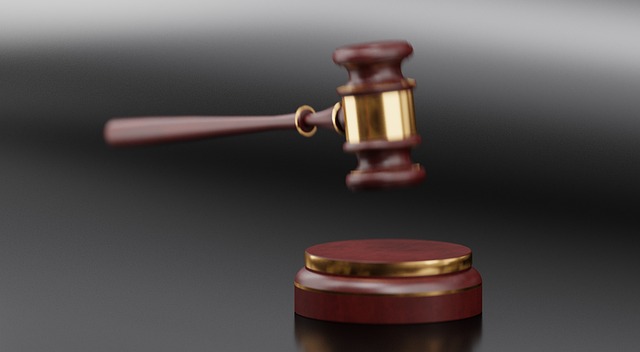Corporate crime investigations present a complex landscape where prosecutor strategies in plea bargaining play a pivotal role. By employing tailored approaches, prosecutors balance legal constraints with societal impact, influencing outcomes and ensuring justice. Utilizing advanced techniques like data analytics and digital forensics, investigators uncover intricate white-collar crimes. The plea bargaining process encourages cooperation from suspects, while scrutinizing corporate structures and activities ensures accountability. Post-investigation strategies, including incentives in plea deals and stringent compliance programs, deter future malfeasance and set precedents for high-stakes cases.
In the intricate world of corporate crime investigations, understanding the nuances of white-collar crimes is paramount. This article navigates the complex landscape by examining key components that underpin successful inquiries, with a particular focus on Prosecutor Strategies in Plea Bargaining Process. From unraveling sophisticated financial manipulations to addressing ethical dilemmas, we delve into techniques, legal considerations, and post-investigation strategies that foster corporate accountability.
- Understanding Corporate Crime Investigations: A Complex Landscape
- The Role of Prosecutors: Strategies for Effective Plea Bargaining
- Uncovering White-Collar Crimes: Techniques and Tools
- Legal Considerations: Ethical Dilemmas and Case Law
- Impact and Prevention: Post-Investigation Strategies for Corporate Accountability
Understanding Corporate Crime Investigations: A Complex Landscape

Corporate Crime Investigations present a complex landscape where white-collar offenses demand meticulous scrutiny. These investigations span all stages of the investigative and enforcement process, from initial suspicion to prosecution and sentencing. Understanding this intricate web involves appreciating the delicate balance between gathering robust evidence and upholding due process rights.
Prosecutor Strategies in Plea Bargaining Process play a pivotal role in shaping outcomes. Across the country, prosecutors employ tailored approaches that consider not just legal strengths but also the broader societal impact of the crime. This nuanced strategy ensures that justice is served while managing the complexities inherent in white-collar defense cases, which often involve intricate financial transactions and sophisticated schemes.
The Role of Prosecutors: Strategies for Effective Plea Bargaining

In corporate crime investigations, prosecutors play a pivotal role in guiding the course of justice. One of their most powerful tools is plea bargaining—a strategic negotiation process that can lead to substantial resolutions. Effective prosecutor strategies in the plea bargaining process involve balancing the interests of justice with the reality of legal constraints and the needs of respective business entities. By carefully weighing factors such as potential penalties, cooperativeness of defendants, and public interest, prosecutors can secure meaningful concessions from corporate offenders.
This strategic approach involves crafting plea agreements that not only address criminal liabilities but also encourage transparency, accountability, and reform within the corporate structure. For his clients, this means navigating the complex landscape of legal consequences while aiming to minimize damage to their business operations. Through well-structured plea bargains, prosecutors can ensure that companies take responsibility for their actions, implement necessary changes, and avoid costly and lengthy jury trials.
Uncovering White-Collar Crimes: Techniques and Tools

Uncovering white-collar crimes requires a meticulous approach due to their intricate nature and often subtle methods. Investigators employ advanced techniques and tools to navigate complex financial transactions, digital footprints, and record-keeping systems. One crucial strategy is leveraging prosecutor strategies in the plea bargaining process. By engaging in open dialogue with suspects, prosecutors can uncover vital information, negotiate cooperation, and avoid indictment for less severe offenses. This approach has proven effective in securing unprecedented track records of successful prosecutions.
Additionally, investigating white-collar crimes involves scrutinizing corporate structures, identifying potential red flags, and analyzing patterns of suspicious activities. Advanced data analytics, forensic accounting, and digital forensics play a significant role in uncovering fraudulent schemes. These techniques enable investigators to delve into financial records, identify anomalies, and piece together the puzzle of illicit activities. This comprehensive approach ensures that justice is served, while also fostering accountability among philanthropic and political communities.
Legal Considerations: Ethical Dilemmas and Case Law

In corporate crime investigations, legal considerations extend beyond mere adherence to laws; they navigate complex ethical dilemmas that challenge even the most seasoned professionals. As prosecutors strategize in the plea bargaining process, they must balance the pursuit of justice with the practical constraints of high-stakes cases. This delicate dance is further complicated by an unprecedented track record of corporate malfeasance, demanding a thorough understanding of case law and its implications. Every step, from gathering evidence to negotiating pleas, is scrutinized under the microscope of public perception and legal precedent, shaping strategies that must be both effective and ethical.
The plea bargaining process, a cornerstone of the criminal justice system, presents unique challenges in corporate crime cases. Prosecutors must weigh the potential benefits of reduced charges or sentences against the need to deter future misconduct. Case law plays a pivotal role in defining acceptable practices, with courts often setting precedents that influence how prosecutors handle these negotiations. By meticulously navigating all stages of the investigative and enforcement process, professionals can ensure that legal considerations are not merely theoretical but actively contribute to the successful prosecution of corporate crime, leaving a positive impact on future high-stakes cases.
Impact and Prevention: Post-Investigation Strategies for Corporate Accountability

After a successful corporate crime investigation, the focus shifts to post-investigation strategies that ensure accountability and deter future misconduct. Prosecutor strategies in plea bargaining play a pivotal role here. By offering incentives like reduced sentences or lesser charges, prosecutors can encourage guilty parties to cooperate fully with investigations, providing valuable insights into the criminal network and its operations. This information is crucial for holding all involved individuals accountable, including high-level executives, and preventing further harm to stakeholders.
Additionally, effective post-investigation measures involve imposing stringent compliance programs and enhanced internal controls within the corporation. These strategies not only foster a culture of integrity but also serve as powerful deterrents against future white-collar crimes. Moreover, public exposure and transparency regarding the investigation’s findings can act as a warning to other organizations, encouraging them to strengthen their ethical frameworks and risk management practices to avoid similar fates in jury trials or general criminal defense scenarios.
Corporate crime investigations demand a multifaceted approach, from understanding complex legal landscapes to employing advanced techniques for uncovering white-collar crimes. The role of prosecutors in the plea bargaining process is pivotal, as strategic negotiations can lead to effective resolutions without compromising justice. Legal considerations and ethical dilemmas must be carefully navigated based on case law, ensuring accountability while mitigating potential biases. Ultimately, post-investigation strategies focusing on corporate responsibility and prevention are essential to fostering a culture of integrity within organizations. By combining robust investigative methods with thoughtful legal processes, we can enhance the effectiveness of prosecutor strategies in the plea bargaining process and ensure a more just and accountable business environment.






